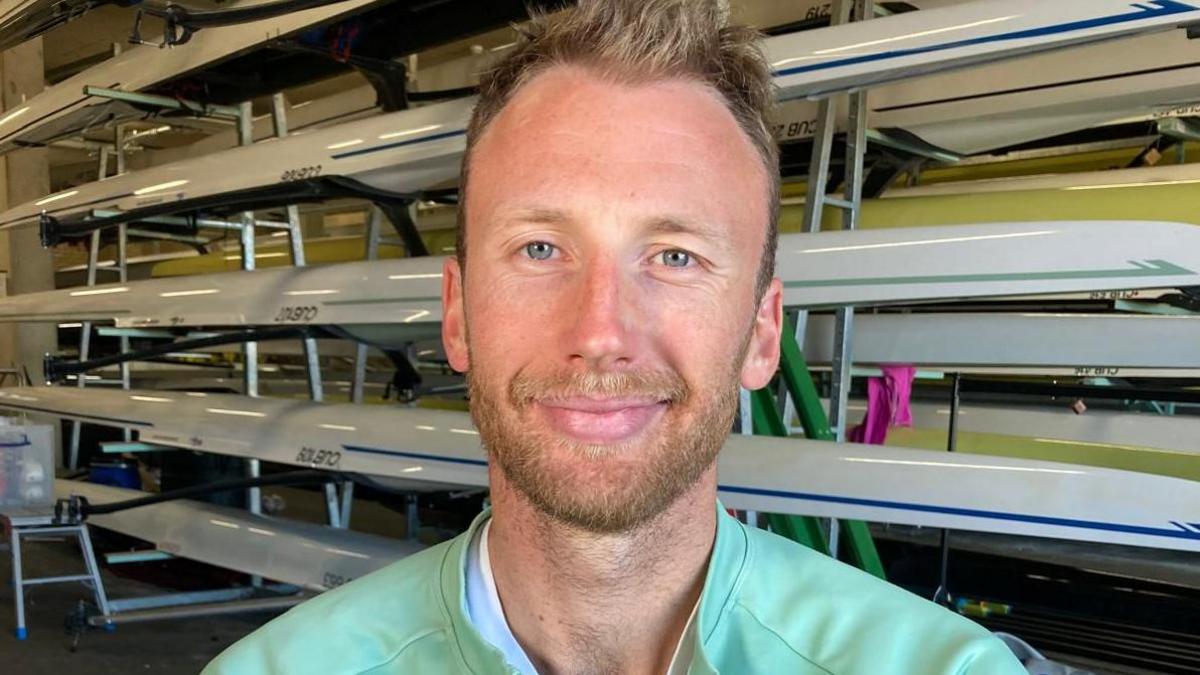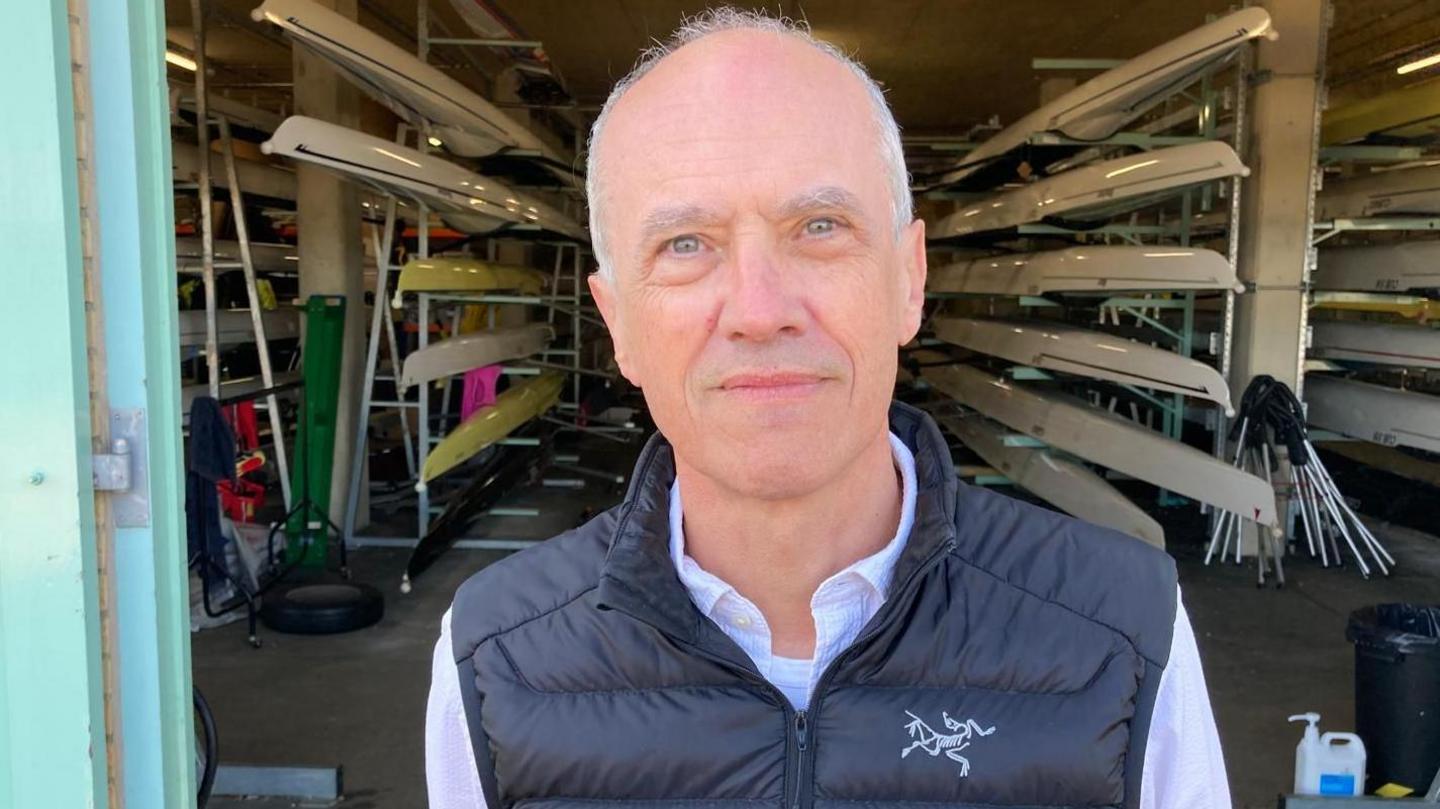Cambridge's Robson on rowing with atrial fibrillation

James Robson suffers from atrial fibrillation but will compete for Cambridge University at this year's Boat Races
- Published
Three years ago, James Robson was rowing with a Great Britain team-mate when he looked down at his watch and saw his heart rate was very high.
He had a strange feeling in his chest and knew something was not right.
Fortunately there were doctors back at base who diagnosed Robson with suspected atrial fibrillation - when sufferers experience an irregular and often rapid heart rhythm - a problem that was then confirmed at hospital.
"It was quite disconcerting; I struggled quite a lot with it to begin with. For the first year I had an episode once every three months," said the Cambridge University rower, who is from Suffolk.
"But over time I have learned to deal with it much better and it doesn't affect me at all."
Symptoms include a heartbeat over 100 beats per minute, feeling chest pain or tightness and a shortage of breath.
All elite athletes at this year's Boat Races are screened for underlying cardiac conditions and have an ECG - a test that records the heart's electrical activity - prior to extreme training.
'Not dangerous'

Dr Rob Howlett says Robson's condition is not dangerous
"James' condition is different to atrial fibrillation you see in the normal population," said Dr Rob Howlett, GP and medical support for Cambridge University Boat Club.
"As an elite athlete he pushes his body to places most people don't go to.
"You see changes in the heart, adaptive changes for the exercise they are doing. You sometimes see odd things appear like atrial fibrillation.
"It's not dangerous, it doesn't cause collapse or sudden death. He's very safe. In fact, he gets it more at rest than when he is pushing himself.
"If they train less it will go away, but that obviously isn't an option."
The 31-year-old wears a heart-rate monitor for every session on the water.
He also does daily meditation to bring his stress levels down and has reduced his caffeine intake.
"If I have an episode, we have a pill in the pocket method," he said.
"I stop training and take a medication called Flecainide which slows the nerve impulses in the heart and reduces the heart to a normal level.
"I then try and relax as much as I can. I have a great medical team around me."
Robson is used to the demands of elite competition.
He is on a break from training with GB Rowing and was a reserve in the men's eight at the Paris Olympics.
He is studying for an MBA at Cambridge and is preparing for his first Boat Race against Oxford on Sunday.
"What I've realised is that atrial fibrillation is indiscriminate," he added.
"But it's great to be bringing awareness to the condition and understand I am not the only one out there dealing with it.
"It's good to show people that anything is possible - that you can prove you can go out there and achieve your dreams."